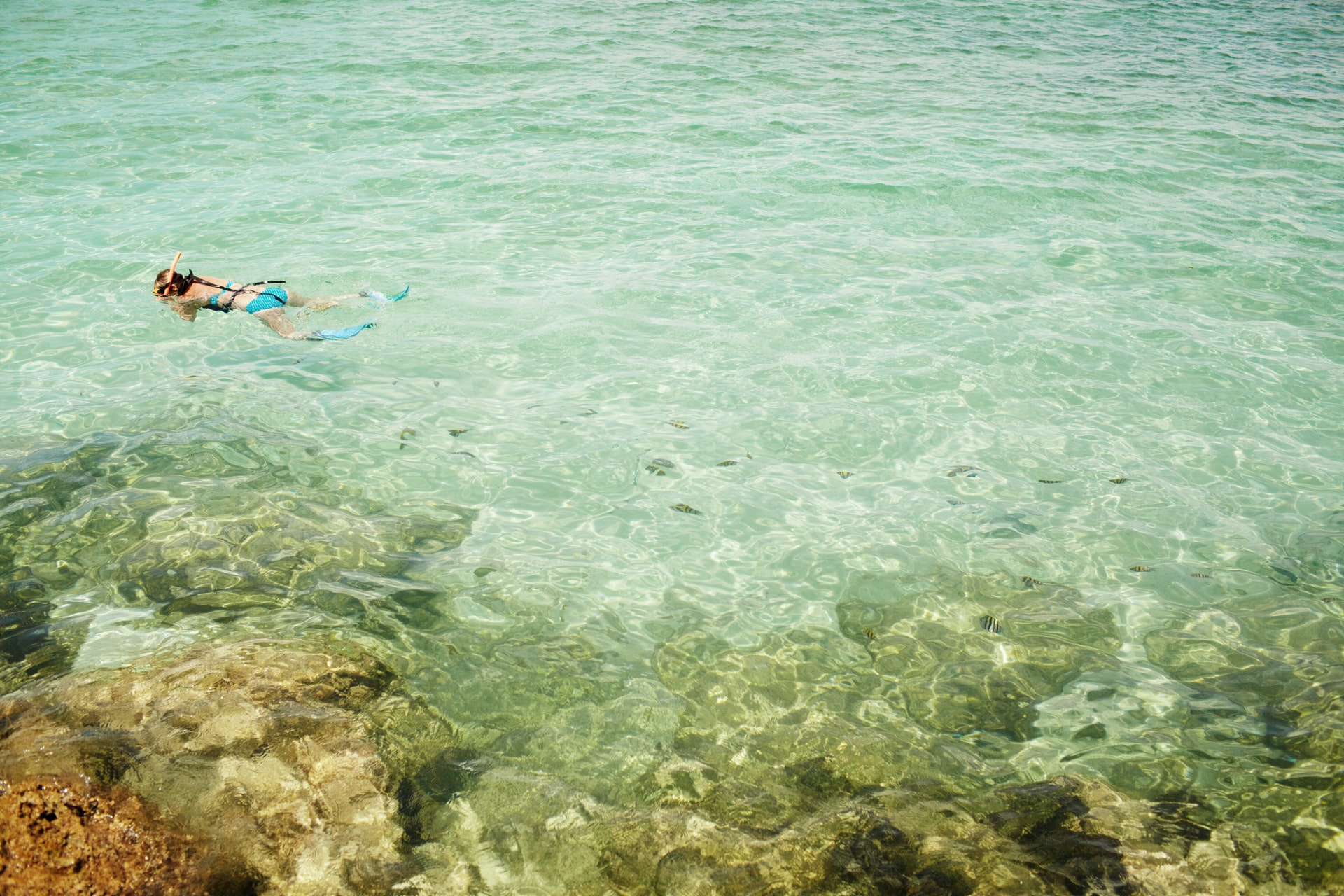The idea of floating alone and watching the underwater life go by on a peaceful reef might sound relaxing and appealing.
Or maybe your holiday partner doesn’t like to get wet, preferring to stay on the sun loungers, leaving you to explore the ocean solo.
But are there risks attached to snorkeling on your own?
We are going to look at the reasons why it’s recommended to snorkel with at least one other person and see that there are increased dangers from snorkeling solo.
We will consider what you can do to make snorkeling alone as low-risk as possible, but ultimately, we’re going to see that snorkeling with a buddy or in a group is safer, more comfortable, and more fun.
- What Are the Dangers of Snorkeling Alone?
- Are There Circumstances When It’s Safe to Snorkel Alone?
- How Can I Tell Whether It’s Safe to Snorkel Alone?
- 21 Safety Tips When Snorkeling Alone
- Conclusion
- You Might Also Like…
Disclosure: this post contains affiliate links (clearly marked with ), which means we may earn a commission if you buy something through them, at no additional cost to you.
What Are the Dangers of Snorkeling Alone?
Snorkeling is a recreation, like scuba diving, where it’s recommended to always be in the water together with at least one other person.
Snorkeling on your own does have risks attached to it.
The primary concern is that there’s no one to assist you if you do have a problem.
These problems could be simple, like needing someone to hold your mask and help keep your face out of the water while you sort out your hair, but they could also be much more severe and even life-threatening.
It’s wise to remember that snorkeling “alone” doesn’t necessarily have to mean that there is no-one at all in the water with you.
You will effectively be alone if neither of you is paying any attention to the other or if you are too spread out to be of any help.
Suffering any of the following problems is more likely to make a solo snorkeler experience injury or death than someone with a buddy there to assist them.
Cramps
It is quite common to get leg cramps snorkeling, and with the help of a buddy, they’re pretty easy to relieve.
But without anyone to assist, they could be tricky to deal with as well as painful.
If someone alone is suffering badly, then staying comfortably at the surface could be complicated while they deal with the cramp.
They can be incapacitated to such a degree that there might be a risk of inhaling water and even drowning.
Even without a serious incident, it’s usually harder to swim after a cramp has occurred, and so returning to safety unaided will be more difficult.
Medical Conditions
It’s possible for anyone to feel unwell unexpectedly, and if this should happen while alone in the water, it could lead to dangerous circumstances.
Snorkeling safely while feeling sick or suffering a medical issue is extremely difficult.
The likelihood of being unable to get back to the exit point, getting lost, or inhaling water is high if there’s no one to help you.
Currents, Surf & Swell
A solo snorkeler might be more likely to get distracted by all that there is to see and not notice that a current is taking them.
Without the reference or the second pair of eyes of another person, it might be easy to drift further than planned and then not be able to get back to the exit point.
Rip-currents, where the water pulls a snorkeler out to sea, are a particular danger, and someone on their own is far less likely to be able to escape from them.
Swell or surf can push the best snorkeler somewhere they don’t want to be, especially if they get distracted.
A buddy can assist pull you out of these areas or away from reefs or rocks and help prevent injury.
Getting Lost
If you’re on your own, merrily swimming along with your face in the water enjoying everything there is to see, it’s more likely that you could get lost and lose track of exactly where you are.
Two pairs of eyes and two minds paying attention are less likely to get lost than one alone.
Being Harder to See
One person alone is much harder to see than two or more together.
In the event of a problem, then a solo snorkeler will be harder to spot for rescuers.
Additionally, if the area being snorkeled in has boat traffic, one person alone isn’t as easy for boats to see and avoid.
Shallow Water Blackout When Duck Diving
Shallow water blackout can occur when duck diving if a snorkeler hyperventilates at the surface before diving down.
Hyperventilation can lower the levels of carbon dioxide in the blood to such a degree that underwater the snorkeler’s brain does not realize that they need fresh air.
Without this feeling, the snorkeler might stay underwater too long and can blackout from lack of oxygen, leading to drowning.
This risk is why when duck diving, one buddy should always stay on the surface to watch the other and help if needed.
So if you’re on your own, it is advised not to duck dive at all to stay safe.
Wildlife Risks
Whether you’re snorkeling on your own or with someone else, you can suffer from a coral sting, cut, or another aquatic life injury.
However, if you’re solo, then no-one is there to assist you through any after-effects.
If you should injure yourself, for example, on some Fire Coral, your buddy can help you swim comfortably to dry land to get treatment.
Someone alone might have trouble swimming effectively with the discomfort, tire quickly, or suffer shock and have more severe problems.
It is said that a solo snorkeler presents a more interesting object for investigation by sharks.
Although shark incidents are rare, there is a recorded increase of occurrence for solo snorkelers or swimmers rather than those in a group.
It should, however, be remembered that for safety, you should NOT be snorkeling at all, alone or otherwise, in an area where sharks are frequently spotted, especially if there is deep water nearby.
Less Fun and Not as Easy
Snorkeling alone is also less convenient and fun.
Your buddy can help you get in and out of the water, can help take fins on and off, assist with mask problems or even provide help if a piece of equipment like a fin strap should break.
If you’re on your own, you have to do everything yourself, which can make it less enjoyable and more likely that you’ll have a problem.
It’s also great fun to share the experience with another person. You can show them stuff they’ve not seen, and they can do the same for you.
Two pairs of eyes will always spot more than one.
Are There Circumstances When It’s Safe to Snorkel Alone?
Under certain circumstances, it can be possible to be “alone” in the water yet still considered safe.
For example, at a resort with a house snorkeling reef, there is often a lifeguard keeping watch, so while you might be alone in the water, there is someone there close-by ready to immediately enter the water and provide assistance if needed.
But how can you snorkel safely if you are truly alone?
We have to remember that being alone will increase the risk of suffering an accident no matter the circumstances.
However, we can say that it will be safer to snorkel alone in:
- Sheltered areas like calm bays without currents or strong tides
- Shallow water
- Where there isn’t any boat traffic
- Places where there are people around on the shore that you could call to for help
- Where we can stay close to shore and can exit at any time without restriction or risk of injury if the need arises
How Can I Tell Whether It’s Safe to Snorkel Alone?
Before setting off, you need to ask yourself what might happen if you have a problem and how you could get help.
Check if the area has strong tides or currents to assess if these could cause you difficulties.
Consider if you can stay close to the shore and if it’s possible to get out at any time, or if not, if you can stay close to the exit point.
Check local weather reports to make sure you’re not going to get caught out by changing conditions.
Ask advice from people familiar with the area to see if it’s generally considered a suitable spot.
Check the area out with a buddy to make sure it’s suitable before visiting along, but be aware that conditions can change.
21 Safety Tips When Snorkeling Alone
1. Before setting out, make sure you feel 100% and don’t go if you’re at all unwell or tired.
2. Check the local tides and avoid areas where a changing tide might cause large currents or you to get trapped and unable to exit safely.
3. Check local information for rip-tides and avoid these areas under all circumstances.
4. Check weather reports, so you don’t get caught by changing conditions.
5. Make sure that you tell someone where you’re going and when you are expected back.
6. Check the condition of your equipment carefully before setting off and replace anything that is damaged.
7. Wear bright colors that are easy to spot.
8. Consider wearing a wetsuit to help with buoyancy and keep you warm if you’re in the water longer than expected.
9. Wear a snorkel vest or other flotation device.
10. Tow a surface marker buoy.
11. Bring a whistle to attract attention.
12. Take your mobile phone in a waterproof, floating case attached to you. Also great for taking photos!
13. Only snorkel alone in an area that you’re familiar with already.
14. If possible, snorkel alone in controlled areas where there is surface cover provided.
15. Stretch muscles before you start, and make sure you’re well-hydrated to help prevent leg cramps.
16. Be extra alert to boat traffic.
17. Stay close to the shore and don’t go into water that is too deep.
18. If possible, stay in areas where you can exit at any time or stay close to the exit point.
19. Know your limits and be conservative.
20. Stay aware of currents’ effects, and if in any doubt, turn early and get to the exit point.
21. Never duck or freedive on your own due to the risk of shallow water blackout.
Conclusion
We’ve seen that it is much safer to snorkel with at least one other person with you.
With caution, planning, and safety equipment, we can lower the risks of snorkeling alone, but it is always the case that if you have a problem, you’ll be alone to fix it.
Snorkeling with the right buddy can be more fun and more straightforward, so it’s best to stick to this wherever possible and be extra conservative in what you do if it’s not.
You Might Also Like…
-

Can You Drown Snorkeling? 11 Common Reasons (+Helpful Tips)
-

Can I Use Snorkeling Fins for Bodyboarding? Pros & Cons (+6 Tips)
-

What Colors to Avoid When Snorkeling? (& Which You Should Wear)
-

Is It Safe to Fly After Snorkeling? What You Should Know (+4 Tips)
-
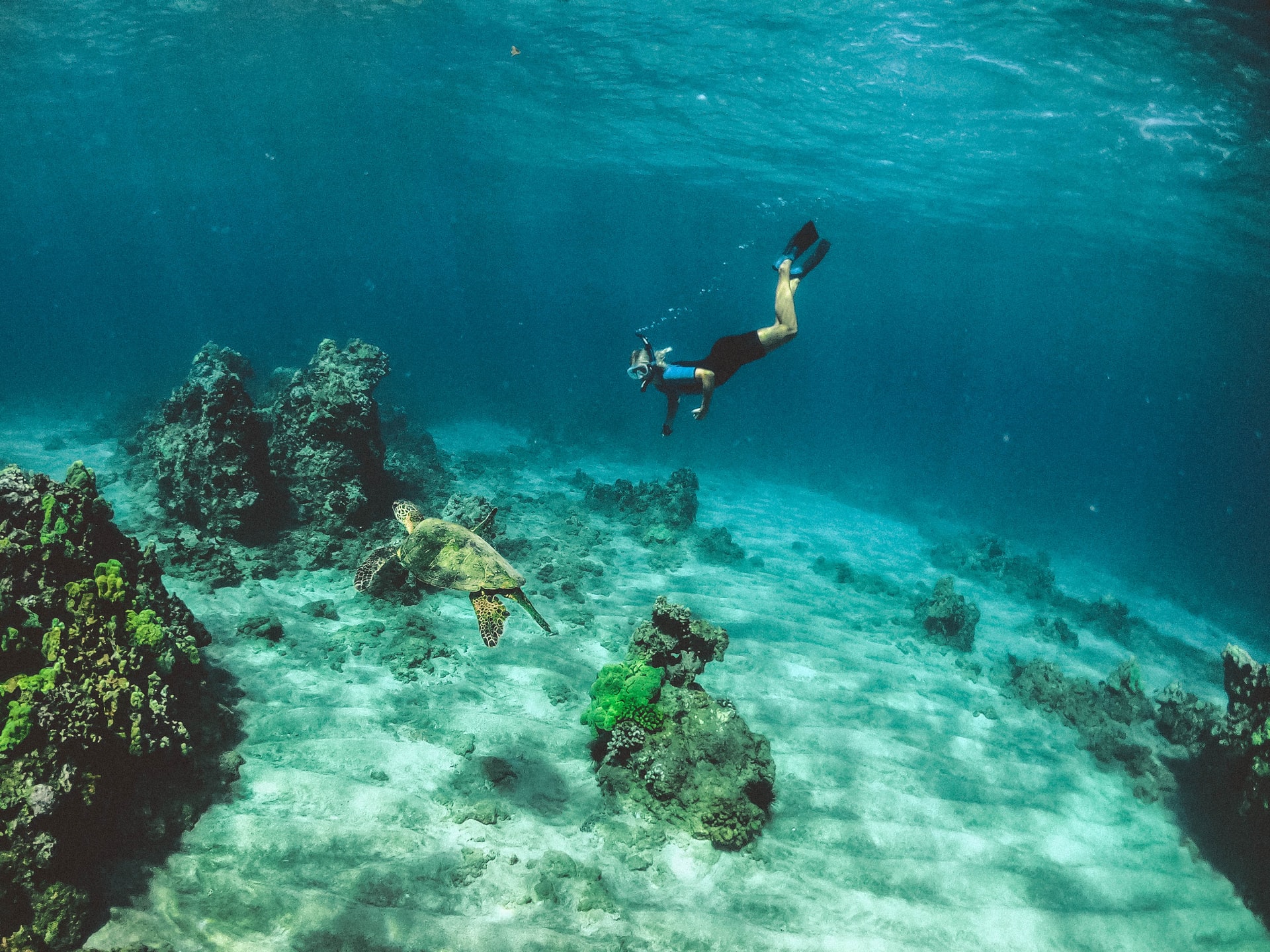
Can’t Hear After Snorkeling? 3 Possible Causes (& Solutions)
-
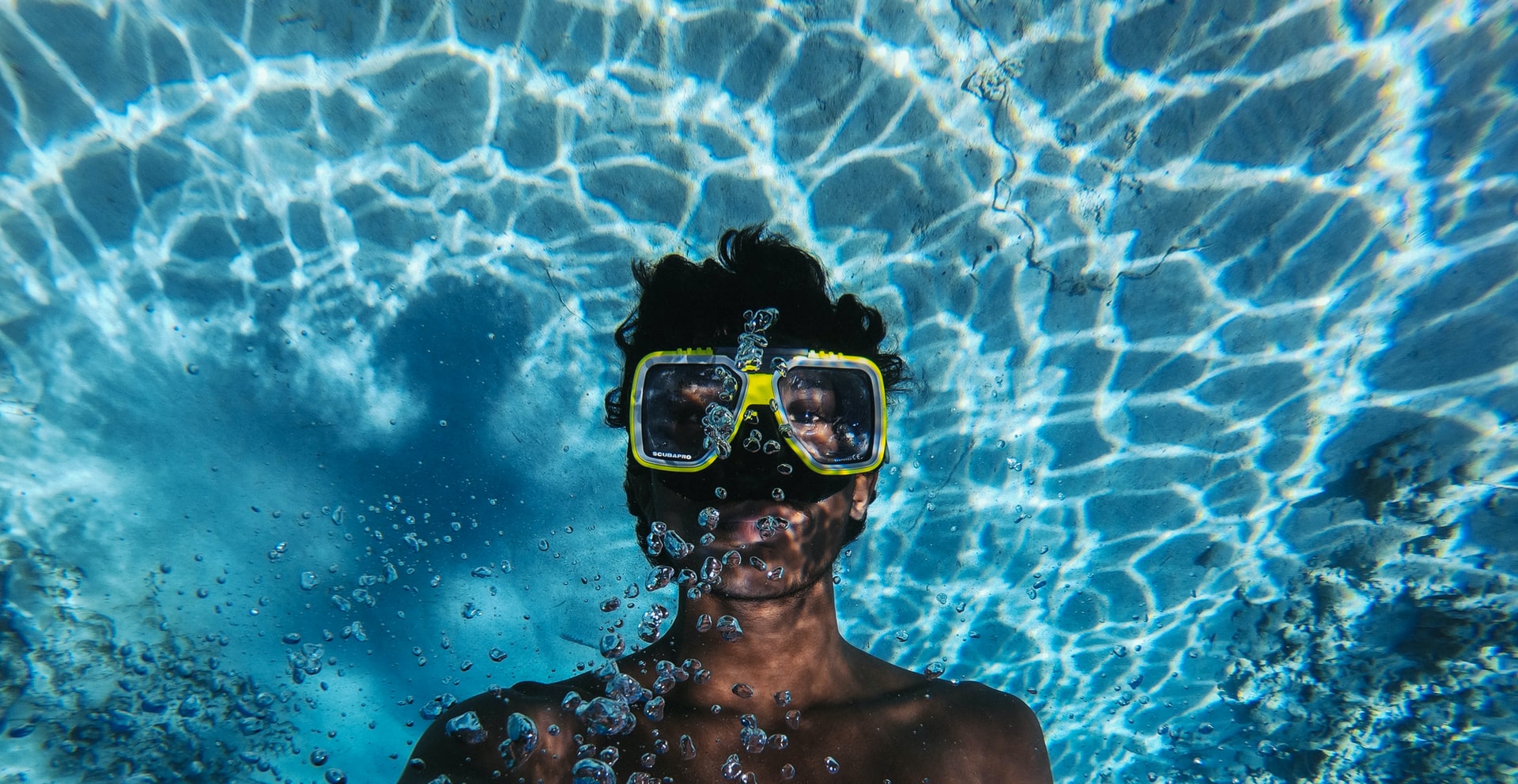
Can Snorkeling Cause a Sinus Infection? (+9 Tips to Avoid It)
-
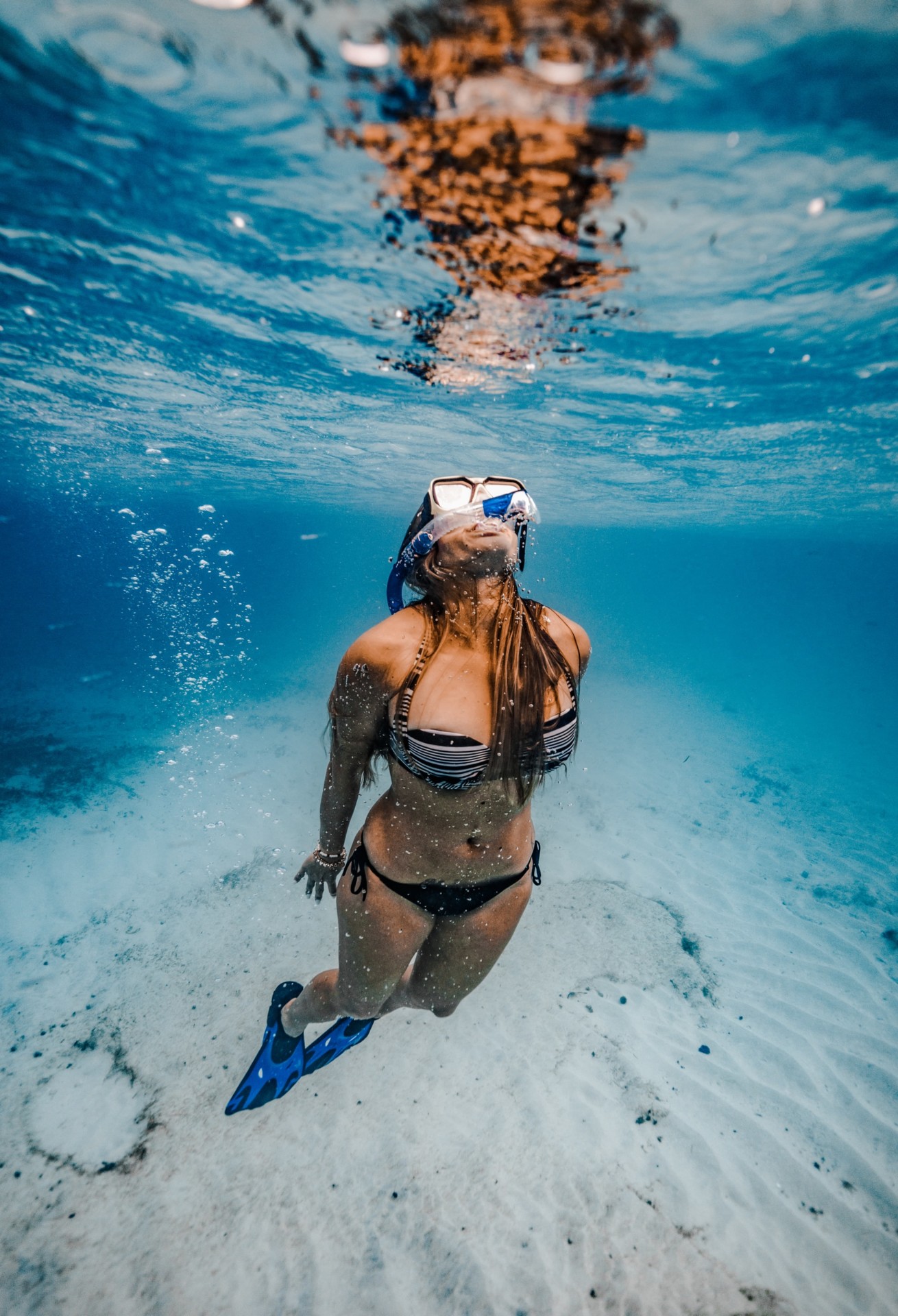
Can Snorkeling Cause a Sore Throat? 8 Common Causes (+Tips)
-
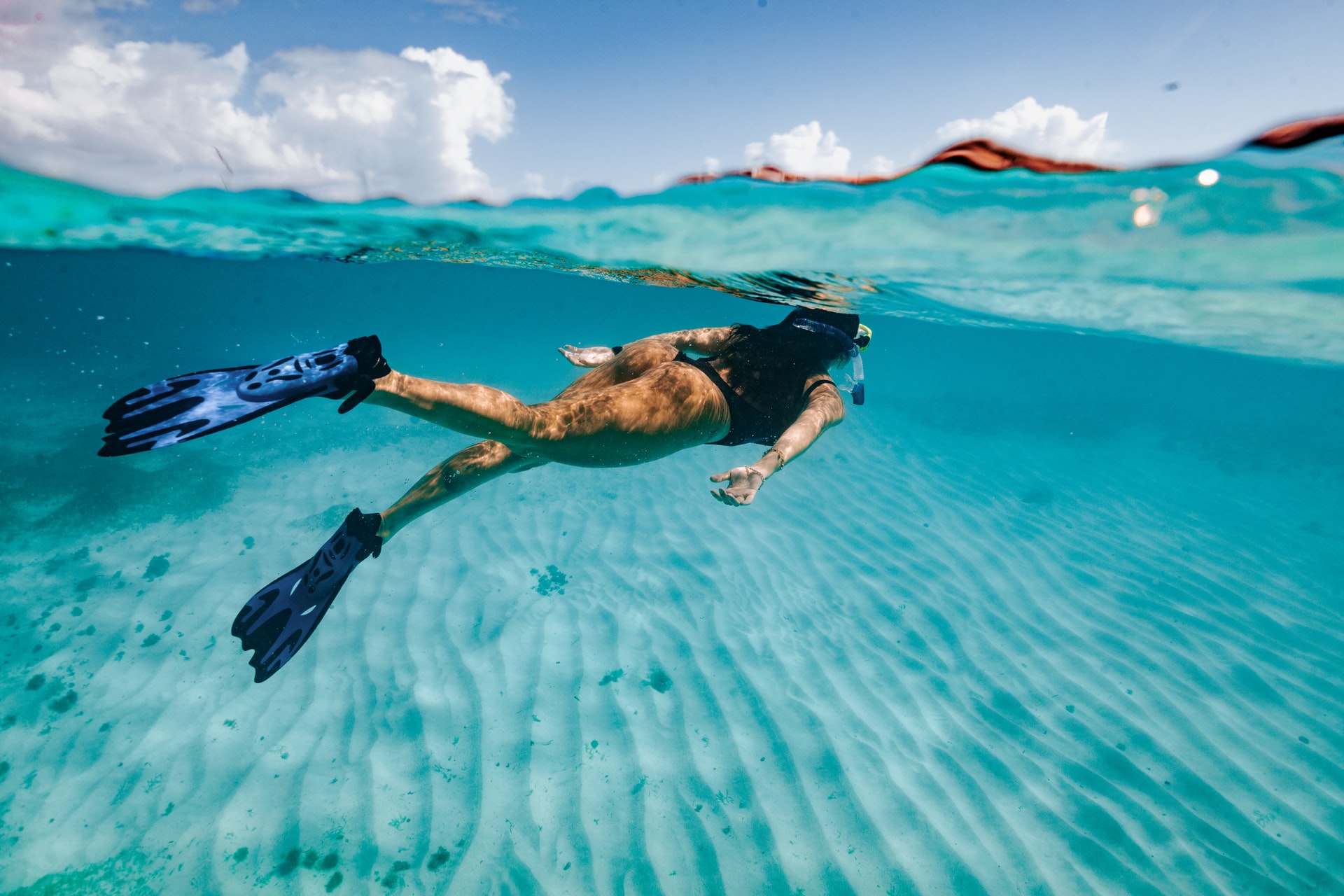
Can Snorkeling Cause Vertigo? (+8 Tips to Avoid It)
-
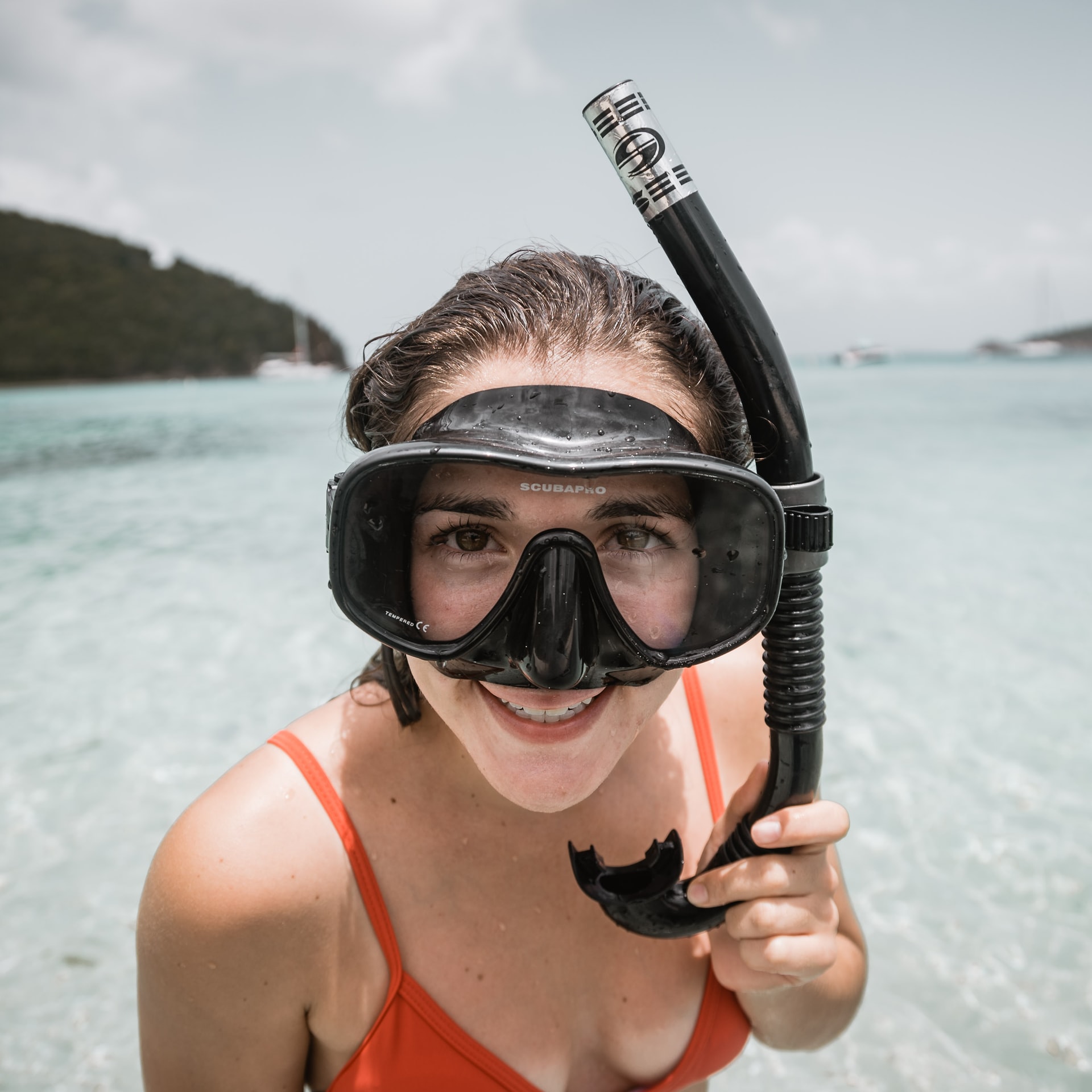
How Do Snorkel Masks Work? (+Regular Vs. Full-Face Masks)
-
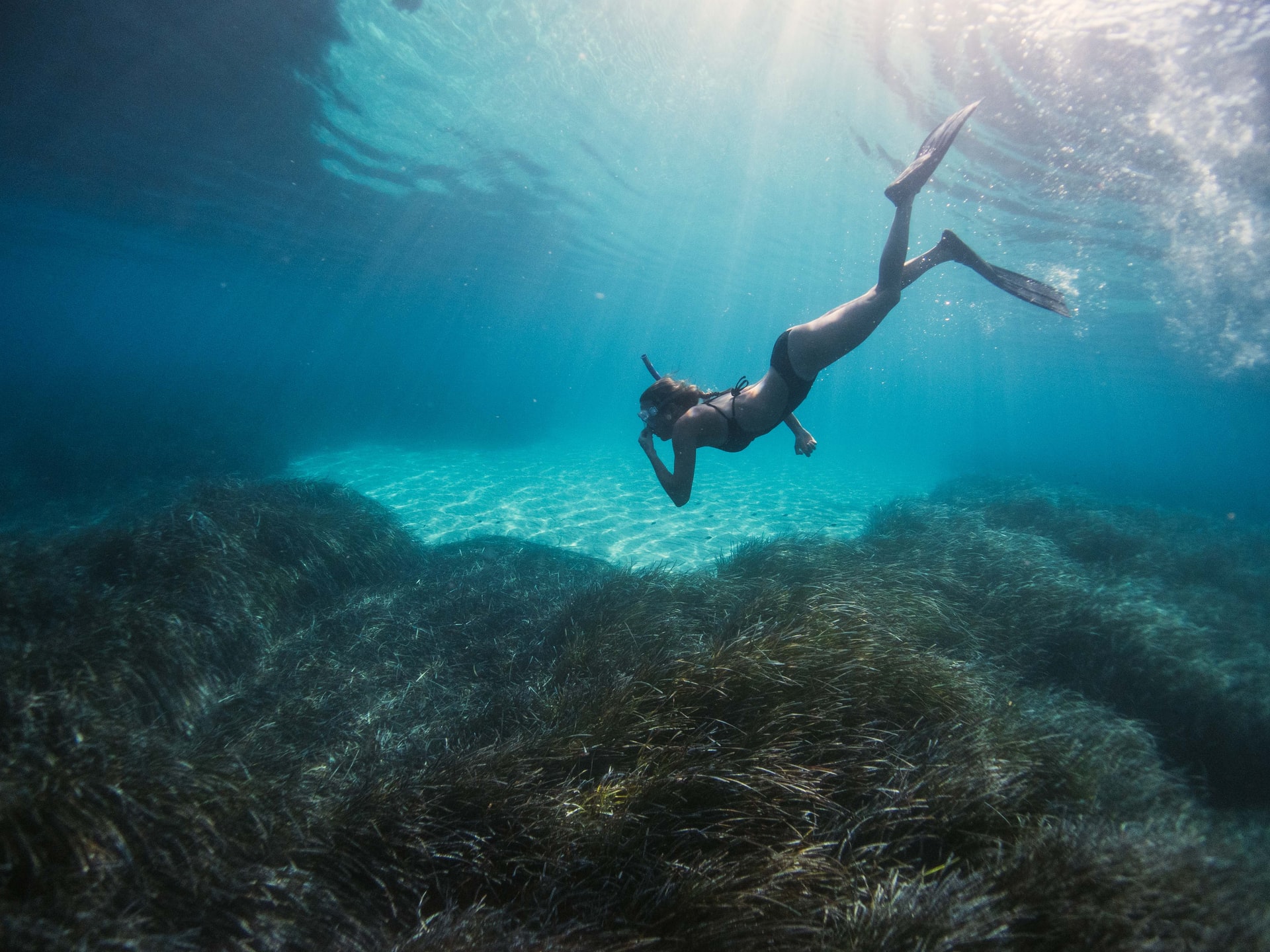
Why Does Snorkeling Make Me Nauseous? (11 Causes & Remedies)
-
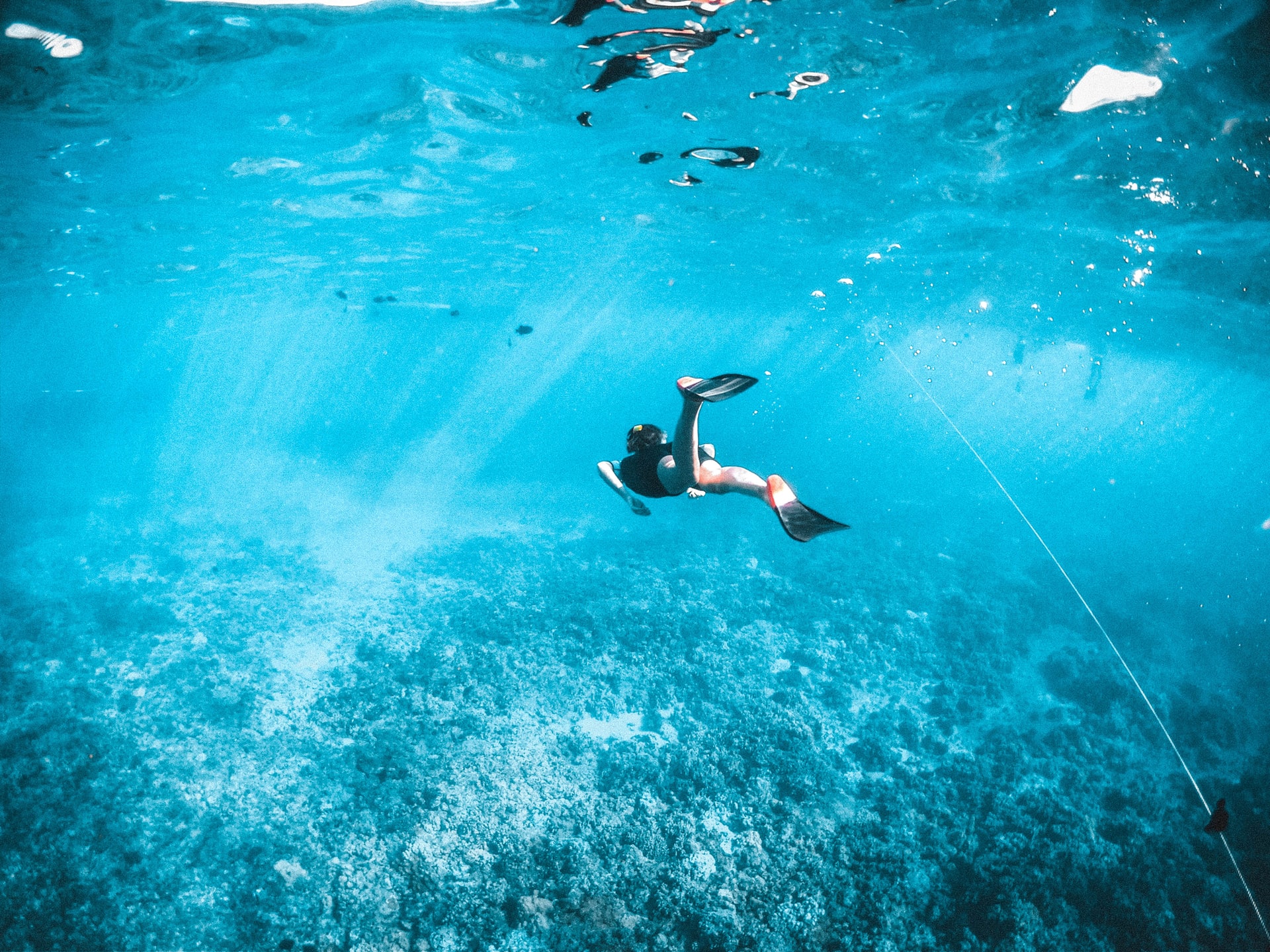
What Does Snorkeling Feel Like? FAQs Answered (for Beginners)
-
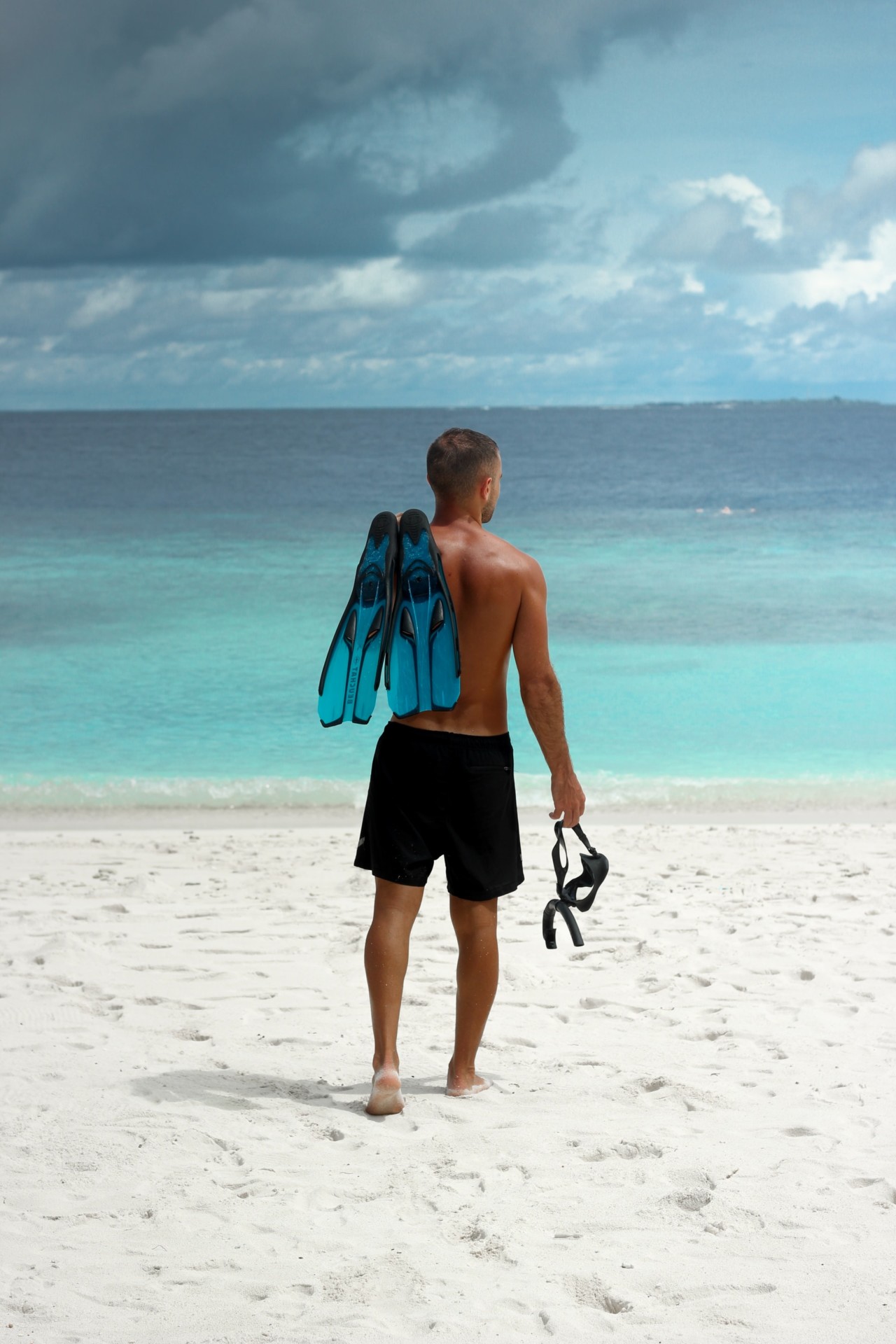
Does Rain Affect Snorkeling Visibility? 4 Ways It Does (+Helpful Tips)

